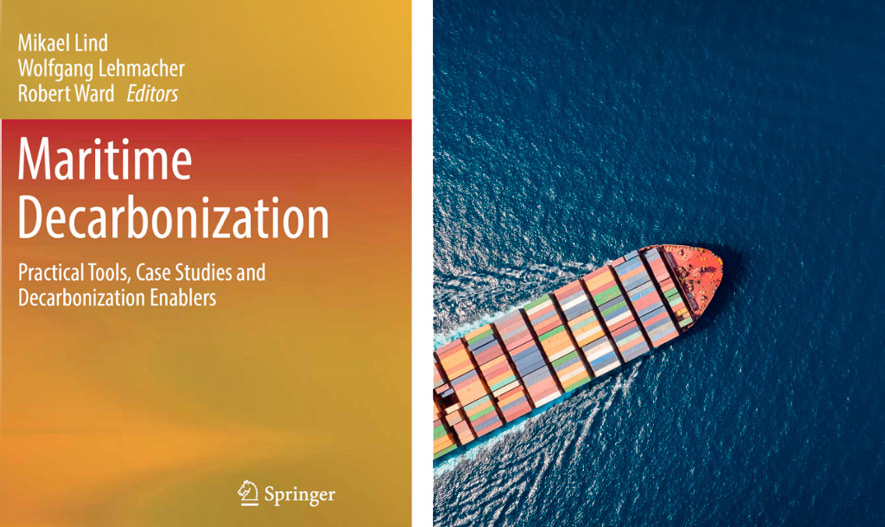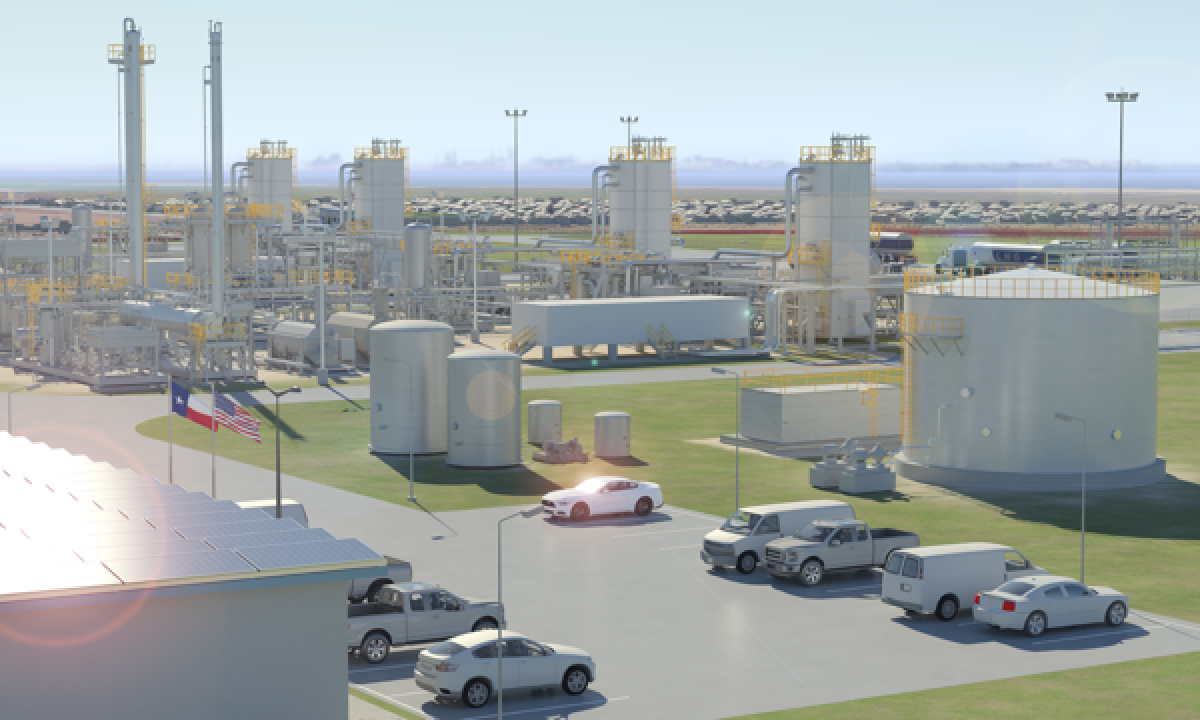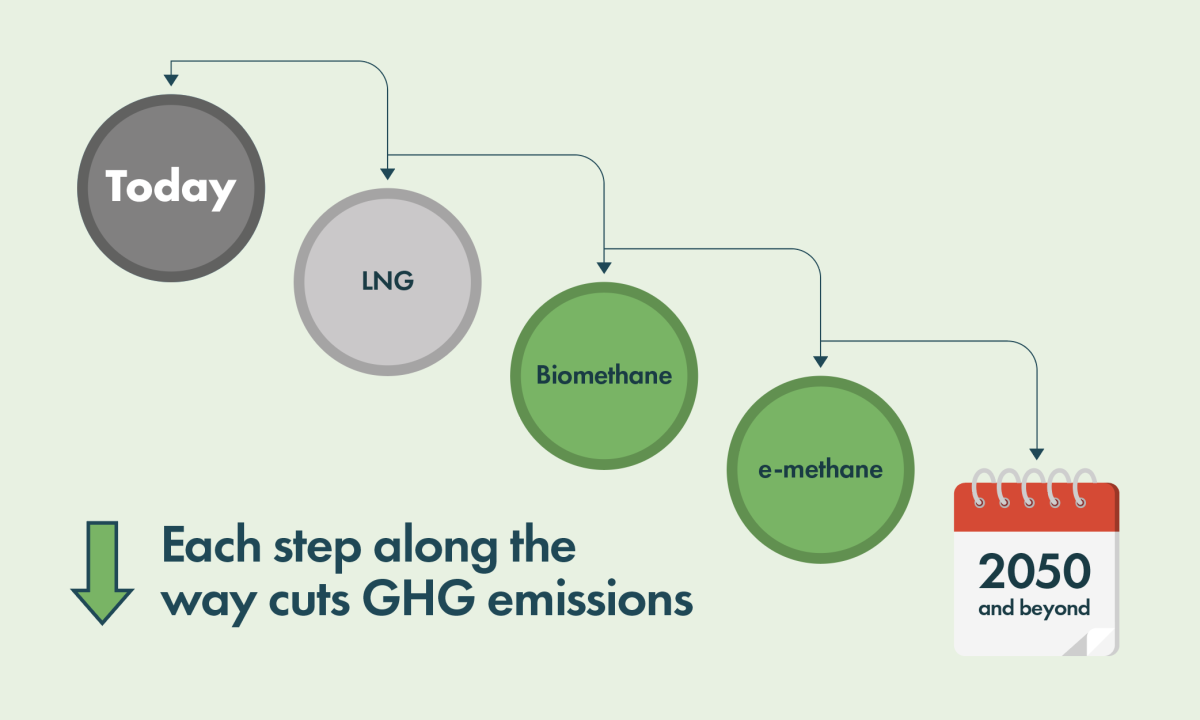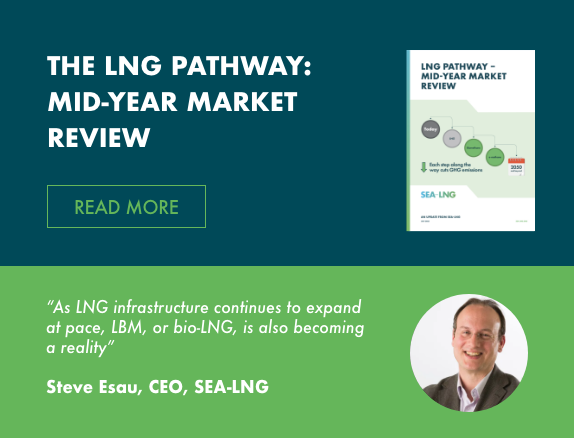12th April 2024
SEA-LNG COO Steve Esau Contributes to Maritime Decarbonisation Book

Steve Esau, Chief Operating Officer of SEA-LNG, has contributed to three chapters of a new book titled ‘Maritime Decarbonization: Practical Tools, Case Studies and Decarbonization Enablers’. The volume provides a holistic and structured perspective on maritime decarbonisation, offers recommendations that governments, industry and other stakeholders can take to drive decarbonisation, and includes real-life case studies from different parts of the maritime ecosystem.
Steve was the lead author of chapter twenty-eight, titled ‘Decarbonization action by energy companies.’ Alongside co-author Jeremy B. Bentham, Co-Chair & Senior Advisor at World Energy Council, Steve discusses how an increasing number of energy supply companies are already becoming active in developing the alternative fuels ecosystems for the maritime industry and working with others to do this.
The chapter provides insights gained from the experiences of first movers in the LNG bunkering space through two case studies, one in Europe and another in the USA. It highlights the opportunities and challenges for frontrunners, the significance of transformative collaborations between both private- and public-sector actors in the ecosystem, and the importance of an anchor partner in collaborations.
Steve also contributed to chapter seven, which identifies and discusses the decarbonisation enablers for the maritime industry, including technology, practices, zero-carbon fuels, policies and regulations. This section identifies a range of maritime decarbonisation enablers, many of which are already available and others which need additional measures to encourage their uptake. The final chapter that Steve contributed to was chapter twelve, which focuses on how to assess the aforementioned decarbonisation enablers.
Alongside the lead author for chapters seven and twelve – Kirsi Tikka, Ph.D., a board member of Ardmore Shipping – Steve emphasises that improving the energy efficiency of the fleet is key to reducing emissions today, and to preparing for the alternative fuels of tomorrow. They also highlight the importance of collaboration; no stakeholder in the maritime ecosystem can decarbonise alone but need to group and collaborate within and beyond the maritime industry.
SEA-LNG offers its members a practical platform for collaboration across the entire LNG value chain – which is one of the strengths of the LNG pathway. Whether it is combating onboard methane slip through technical developments, collaborating to scale up bio-LNG supply or commercialising synthetic/e-LNG, LNG stakeholders upstream and downstream are working together.
SEA-LNG focuses on developing fact-based analysis on the commercial, environmental and operational benefits of LNG as a marine fuel and the LNG pathway to net-zero emissions. This work extends from the commercial world into the academic world. You can now order the full book here. (£64 as an e-book, £80 in hardcover.)



